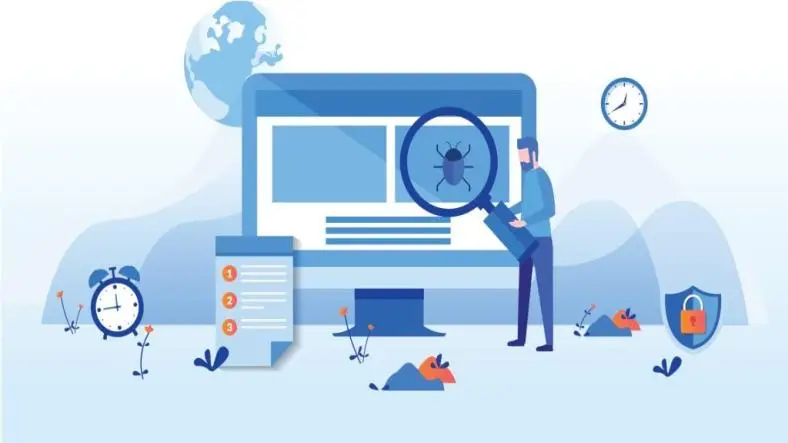As applications grow in complexity, ensuring optimal performance becomes critical. Code profiling and performance optimization are essential practices that help developers identify bottlenecks and improve the efficiency of their PHP applications.
In this article, we will explore the tools and techniques for code profiling and performance optimization in PHP 8.
What is Code Profiling?
Code profiling is the process of analyzing an application to identify areas that consume excessive resources, such as CPU time or memory. Profiling helps developers understand how their code behaves in real-world scenarios, allowing for informed optimization decisions.
Benefits of Code Profiling
- Identifies Bottlenecks: Profiling reveals which parts of the code are slow or resource-intensive.
- Improves Performance: By focusing on the most critical areas, developers can achieve significant performance gains.
- Guides Refactoring: Profiling provides insights into where code structure can be improved for better efficiency.
Tools for Code Profiling in PHP 8
1. Xdebug
- Xdebug is a powerful debugging and profiling tool for PHP.
- It provides detailed insights into code execution, including function call traces and memory usage.
Installing Xdebug
You can install Xdebug using PECL:
pecl install xdebug
Once installed, you can enable it in your php.ini file:
zend_extension=xdebug.so
Using Xdebug for Profiling
To profile your PHP application, you can enable the profiling feature in your php.ini:
xdebug.profiler_enable=1
xdebug.profiler_output_dir="/path/to/profiler/output"
This configuration will generate cachegrind files in the specified directory, which can be analyzed using tools like Webgrind or QCacheGrind.
2. Blackfire
- Blackfire is a commercial profiling tool designed for PHP applications.
- It provides advanced performance monitoring and profiling features, including integration with CI/CD pipelines.
Setting Up Blackfire
To get started, you need to install the Blackfire agent and PHP extension:
# Install Blackfire agent
curl -sS https://get.blackfire.io/blackfire-install.sh | bash
# Install Blackfire PHP extension
pecl install blackfire
Once installed, configure your Blackfire credentials in your php.ini:
blackfire.client_id="YOUR_CLIENT_ID"
blackfire.client_token="YOUR_CLIENT_TOKEN"
blackfire.server_id="YOUR_SERVER_ID"
Profiling with Blackfire
You can profile your application using the Blackfire CLI:
blackfire run php your-script.php
This command will capture performance data, which you can view on the Blackfire web interface.
3. Tideways
- Tideways is another performance monitoring tool that focuses on profiling PHP applications.
- It provides insights into performance bottlenecks and includes transaction monitoring.
Installing Tideways
You can install the Tideways PHP extension using PECL:
pecl install tideways
Then, configure it in your php.ini:
extension=tideways.so
tideways.api_key="YOUR_API_KEY"
Profiling with Tideways
To profile a script with Tideways, you can use the CLI tool:
tideways start
php your-script.php
tideways stop
Step 1: Performance Optimization Techniques
Once you have identified performance bottlenecks through profiling, you can apply various optimization techniques:
1. Optimize Database Queries
- Use Indexes: Ensure that your database tables are properly indexed for faster lookups.
- Avoid N+1 Queries: Use techniques like eager loading to minimize the number of queries executed.
- Cache Results: Implement caching layers using Redis or Memcached to reduce database load.
2. Code Optimization
- Avoid Unnecessary Computation: Refactor your code to eliminate redundant calculations and function calls.
- Use Efficient Data Structures: Choose the right data structures that provide optimal performance for your use case (e.g., arrays vs. objects).
- Profile and Refactor: Continuously profile and refactor your code based on profiling insights.
3. Utilize Caching
Implement caching at various levels (application, database, and HTTP) to improve performance:
- Opcode Caching: Use tools like OPcache to cache compiled PHP scripts.
- Data Caching: Cache frequently accessed data in memory using Redis or Memcached.
- HTTP Caching: Utilize caching headers and reverse proxies to cache HTTP responses.
4. Asynchronous Processing
For long-running tasks, consider using asynchronous processing:
- Job Queues: Offload heavy tasks to a queue using tools like RabbitMQ or Beanstalkd.
- Cron Jobs: Schedule periodic tasks using cron jobs for batch processing.
Step 2: Analyzing Profiling Results
Once you have generated profiling data, analyze it to identify performance bottlenecks. Look for:
- Slow Functions: Identify functions that take the most time to execute.
- Memory Consumption: Check which parts of your code use excessive memory.
- Frequent Database Queries: Look for N+1 queries or unnecessary calls to the database.
By focusing on these areas, you can prioritize your optimization efforts effectively.
Step 3: Implementing Advanced OOP Techniques
Once you have pinpointed the performance issues, consider employing advanced OOP techniques to enhance your codebase.
1. Refactor with Final Classes
Google Ad 1
Using final classes can prevent further inheritance and maintain the integrity of critical classes. This helps avoid unintended behavior changes and optimizes performance.
final class Logger {
public function log($message) {
echo "[LOG]: " . $message . "\n";
}
}
2. Leverage Magic Methods
Magic methods can simplify your code, making it more dynamic and easier to maintain. For instance, using __get and __set allows for flexible property access.
class User {
private $data = [];
public function __get($property) {
return $this→data[$property] ?? null;
}
public function __set($property, $value) {
$this→data[$property] = $value;
}
}
3. Utilize Late Static Binding
Late static binding allows you to reference the calling class in a static context, which is particularly useful in complex class hierarchies.
class Base {
public static function whoAmI() {
echo static::class;
}
}
class Child extends Base {}
Child::whoAmI(); // Outputs: Child
4. Implement Design Patterns
Using design patterns such as Singleton, Factory, or Repository can lead to more organized and maintainable code. For example, the Repository pattern can streamline data access and caching:
class ProductRepository {
private $cache;
public function __construct(RedisCache $cache) {
$this→cache = $cache;
}
public function find($id) {
$cacheKey = "product:$id";
$product = $this→cache→get($cacheKey);
if (!$product) {
// Fetch from the database
$product = $this→fetchFromDatabase($id);
$this→cache→set($cacheKey, json_encode($product));
}
return json_decode($product, true);
}
private function fetchFromDatabase($id) {
// Simulate database fetch
return ['id' => $id, 'name' => 'Sample Product'];
}
}
Step 4: Testing and Monitoring
After implementing optimizations, it’s essential to test your application thoroughly. Check for:
- Performance Improvements: Use your profiling tools to compare performance before and after optimization.
- Functionality: Ensure that the application behaves as expected after changes.
- Code Quality: Conduct code reviews to maintain quality and readability.
Conclusion
Optimizing an existing PHP 8 project using profiling tools and advanced OOP techniques is a structured approach to enhancing application performance. By identifying bottlenecks with tools like Xdebug, Blackfire, and Tideways, and implementing OOP techniques such as final classes, magic methods, and design patterns, you can significantly improve both the performance and maintainability of your code.
Regular profiling and optimization should be integral to your development process, ensuring that your applications remain efficient as they evolve.
Thanks for reading the article, for more Science and Technology related articles read and subscribe to peoples blog articles.

![Dell [Smartchoice] Core i3-1215U, 12th Gen (8GB RAM/512GB SSD/FHD/Window 11/MS Office' 21/15"(38 cm)/15 Month McAfee/Black/1.48kg Laptop Dell [Smartchoice] Core i3-1215U, 12th Gen (8GB RAM/512GB SSD/FHD/Window 11/MS Office' 21/15"(38 cm)/15 Month McAfee/Black/1.48kg Laptop](https://m.media-amazon.com/images/I/61QXAqq9OhL._SX679_.jpg)












![OnePlus Buds Pro 3 Bluetooth TWS in-Ear Buds - Dual Drivers, Dual DACs, Dynaudio EQs, Up to 50dB Adaptive Noise Cancellation, Up to 43Hrs Battery [Lunar Radiance] OnePlus Buds Pro 3 Bluetooth TWS in-Ear Buds - Dual Drivers, Dual DACs, Dynaudio EQs, Up to 50dB Adaptive Noise Cancellation, Up to 43Hrs Battery [Lunar Radiance]](https://m.media-amazon.com/images/I/61dVOVxHn3L._SX679_.jpg)
